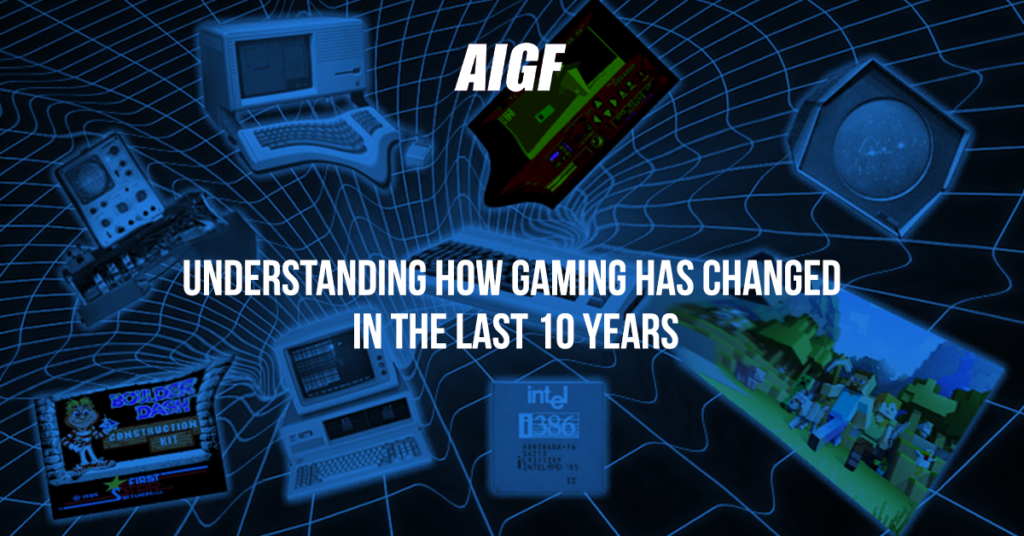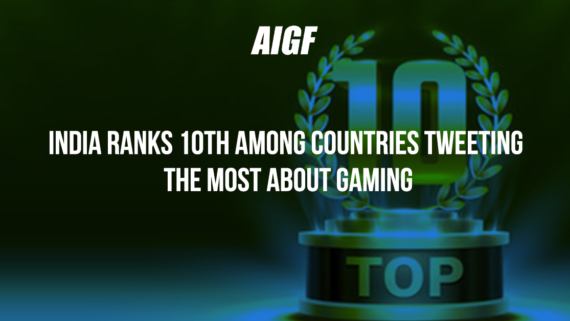From mobile devices that can play games to multiplayer gaming online and the introduction of augmented reality, gaming has never been bigger. But one thing has remained constant: the allure of gaming. Today, it’s not just the biggest entertainment industry in the world; it’s also one of the most exciting ones.
Understanding How Gaming Has Changed in the Last 10 Years
Gaming has evolved tremendously over the last 10 years. From mobile devices that can play games to multiplayer gaming online and the introduction of augmented reality, gaming has never been bigger. But one thing has remained constant: the allure of gaming. Today, it’s not just the biggest entertainment industry in the world; it’s also one of the most exciting ones. With that, let’s take a look back at how gaming has evolved over the last decade and find out where it’s headed in the future.
Mobile Gaming
It’s difficult to exaggerate the importance of mobile gaming technologies. Mobile games now make up the majority of worldwide gaming income, but this was not always the case.
Mobile games made over $1 billion in profit in 2011. In comparison, mobile gamers spent nearly $90 billion on games last year. Such a significant increase in consumer expenditure demonstrates the massive global impact of mobile gaming.
Free-to-play and play-to-earn games
A decade ago, free-to-play (F2P) games had a modest following, and pay-to-earn (P2E) games were almost unknown. Only one free-to-play game, World of Tanks, made the list of Metacritic’s top 100 games of 2011.
F2P games such as PUBG and Fortnite now have large audiences. P2E games are a relatively new addition to the gaming world, and the genre would not have existed without the widespread adoption of blockchains, cryptocurrencies, and NFTs.
Modern monetization
Even though physical versions of games are still available from time to time, digital shops have surpassed traditional stores in terms of annual sales. Steam, the Playstation Store, and Apple’s App Store aren’t the only places where you may make money.
Producers and developers of video games continue to experiment with various payment mechanisms with each passing year. Battle passes and seasonal content, for example, have mostly replaced loot boxes and pay-to-win microtransactions.
Esports
Esports games have gone from niche category to blockbuster entertainment, whether it’s a multiplayer online battle arena (MOBA), a first-person shooter (FPS), or a battle royale. Thousands of people watch tournaments, and many of them are now broadcast live on television.
The top five esports games in 2021 were awarded more than $110 million in prize money. Compared with 2021 esports, the top ten games collectively earned less than $8 million in 2011.
Streaming on Twitch
Given that Twitch was just founded ten years ago, it’s incredible how rapidly it has grown to become the world’s largest live-streaming network. Twitch completely transformed the way we consume video game content in 2011, even though YouTube had been there for quite a few years.
Today, Twitch and YouTube can compete with big television networks. Twitch channels, for example, have over 2.5 million concurrent users each day, which is more than AMC, TNT, and many other well-known networks.
Cloud gaming
It’s reasonable to say that Google’s Stadia failed in its attempt to introduce cloud gaming to the masses at this point. Several other tech companies, on the other hand, have been able to attract a regular stream of users to their cloud-based streaming systems.
Both Nvidia’s GeForce Now and Microsoft’s Xbox Cloud Gaming have withstood the storm and are now considered commonplace in the gaming world. Although Xbox Cloud Gaming is still relatively young, Geforce Now debuted in 2015.
Virtual reality
Due to their affordable prices and improved designs, virtual reality (VR) gadgets are no longer considered novelty items. The VR market is significantly better than it was years ago; motion sickness is much less of an issue, and the number of VR games is increasing.
Amusement Park rides and quirky arcade games were the closest we had to genuine VR in 2011. When the Oculus Rift debuted in 2013, it ushered in a virtual reality revolution that continues to this day. When compared to 2020, VR sales more than doubled in 2021.
Awards
The gaming business was the only entertainment sector without a major yearly awards event before the Game Awards were founded in 2014. The Game Awards were seen by 2 million people in their debut year. Over 80 million people watched it last year.
The Game Awards, which are produced and hosted by games journalist Geoff Keighley, have a distinguished reputation thanks to many successful relationships with some of the industry’s biggest names, including Sony, Microsoft, Nintendo, and Valve.
CONCLUSION
If all the above factors are considered, it’s evident that gaming has developed far faster than anyone could have predicted, transitioning from a hobby for some to recreation for all in an astoundingly short period. With such incredible growth behind it, who knows where gaming will take us next! There’s no way of knowing for sure, but it’s a huge canvas to paint on.
Credit: Telemedia Online











Comments
Comments are closed.